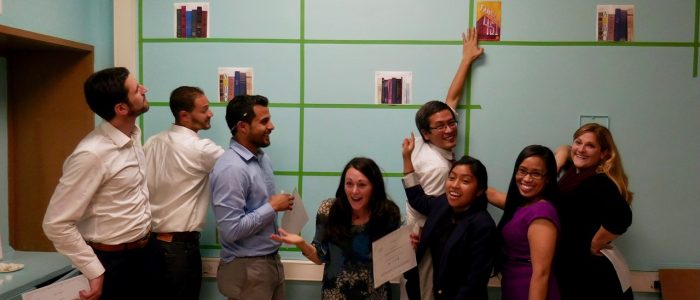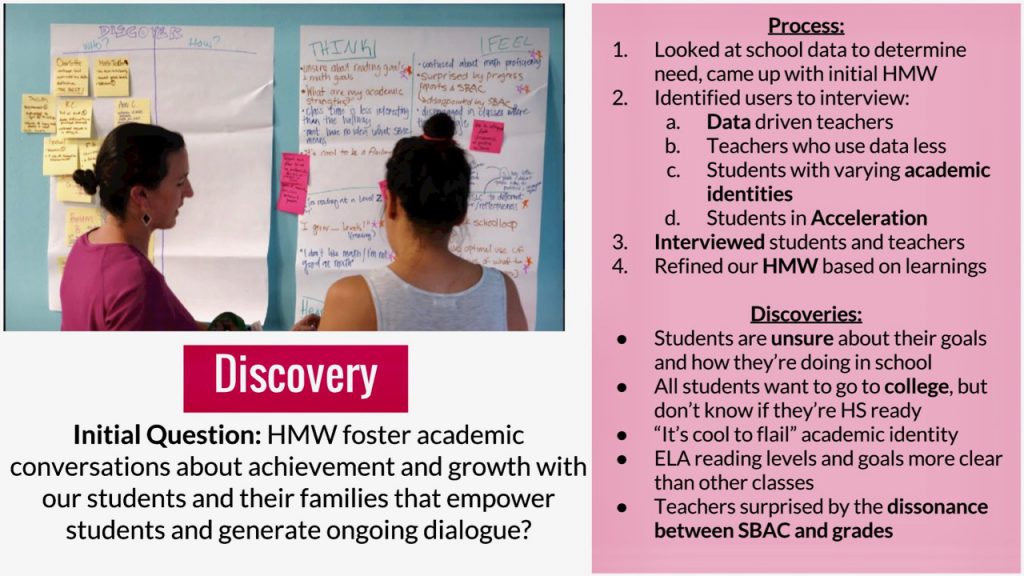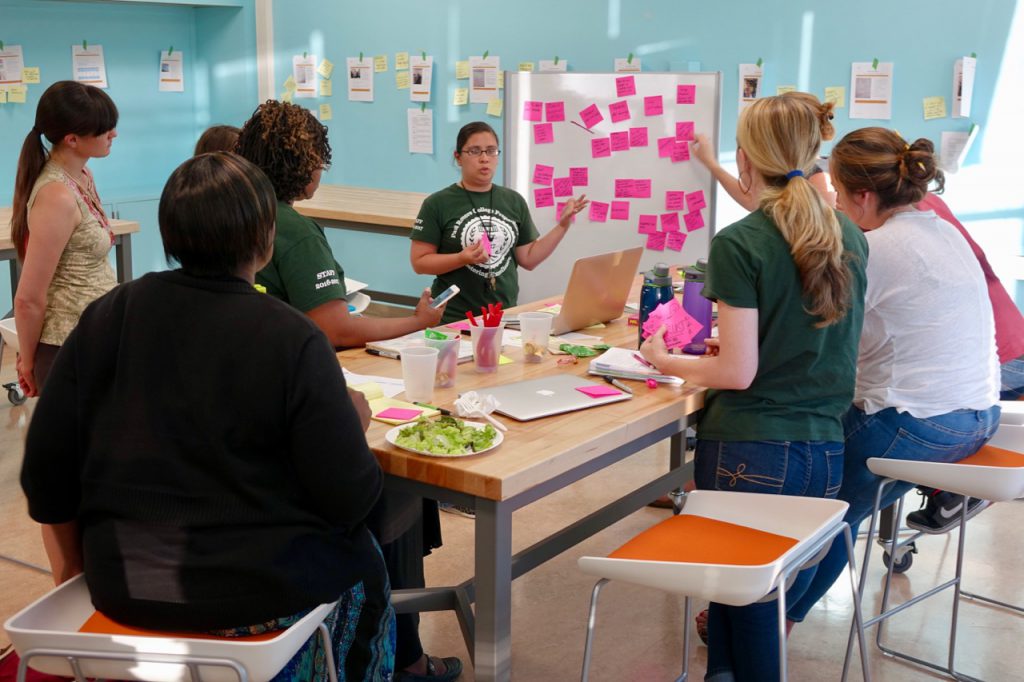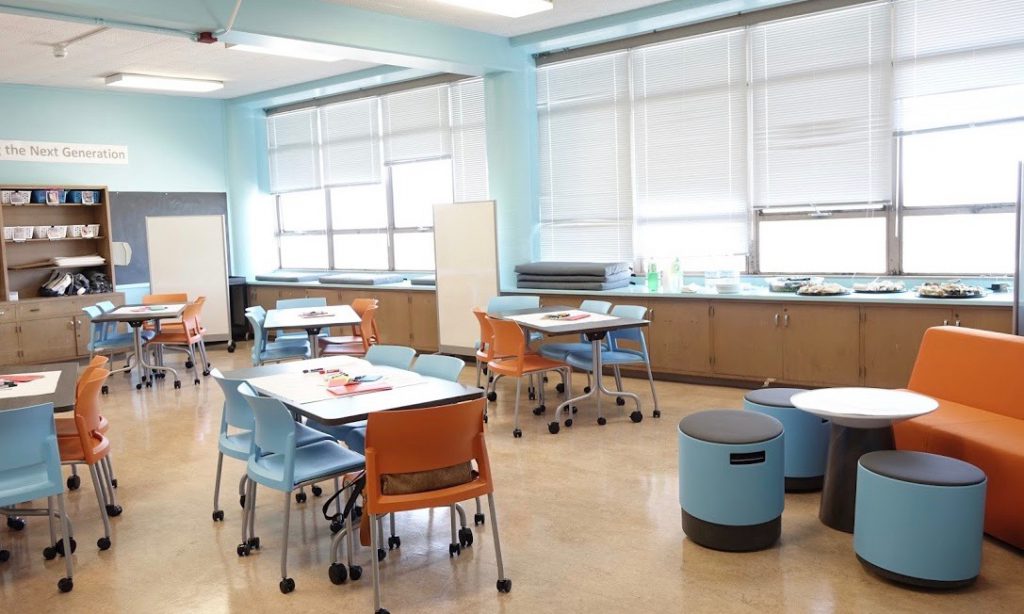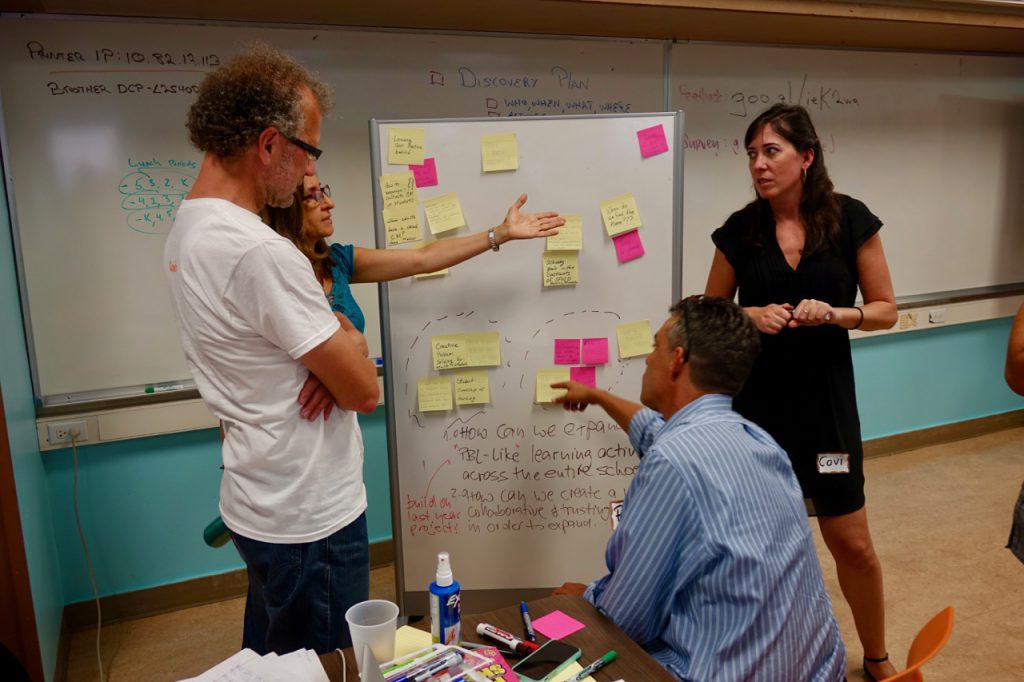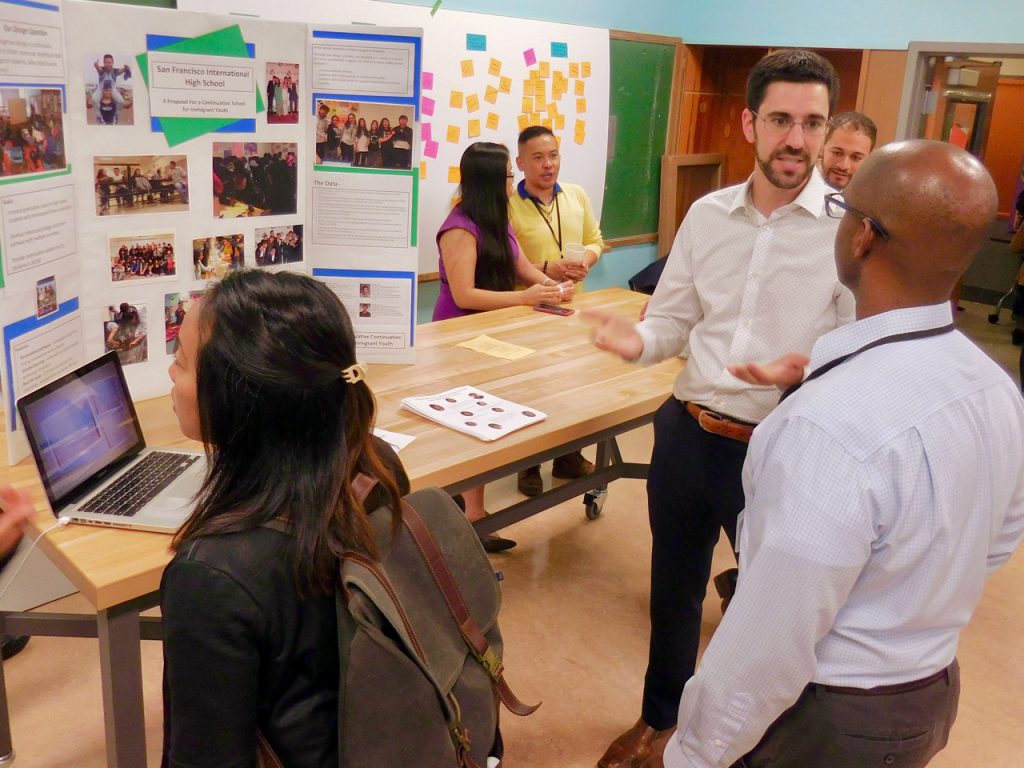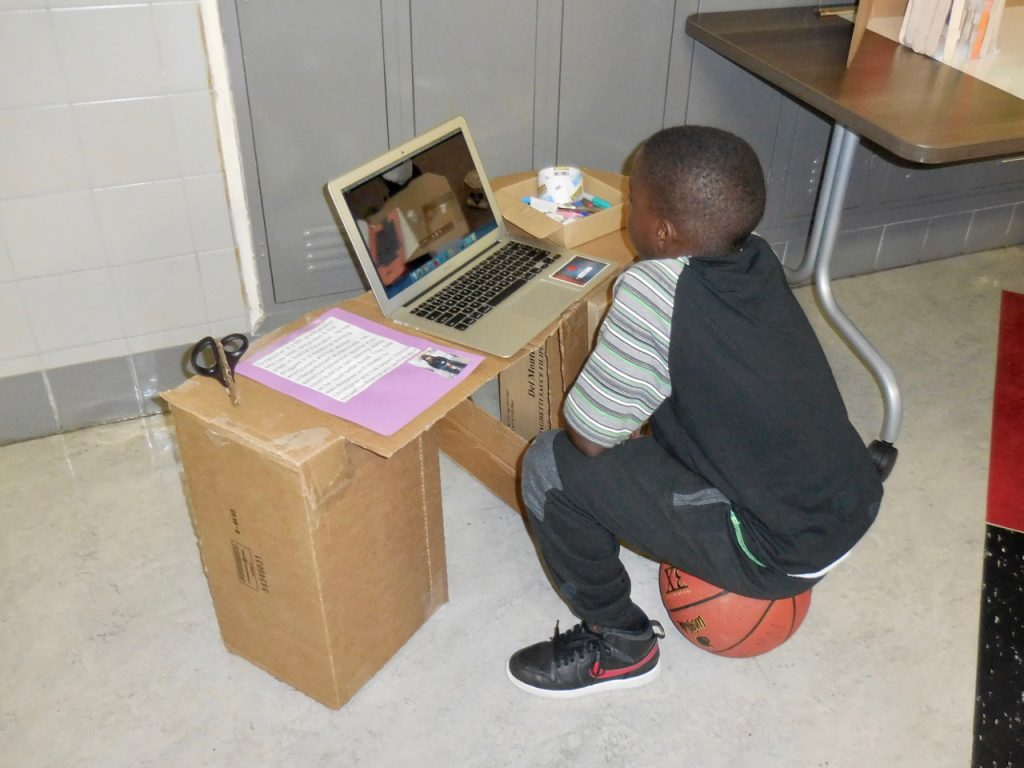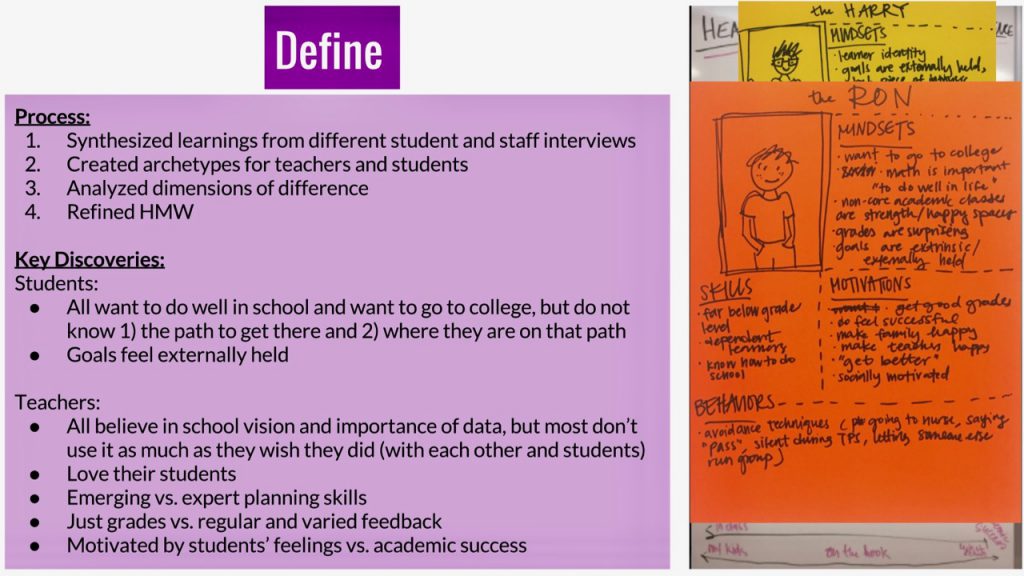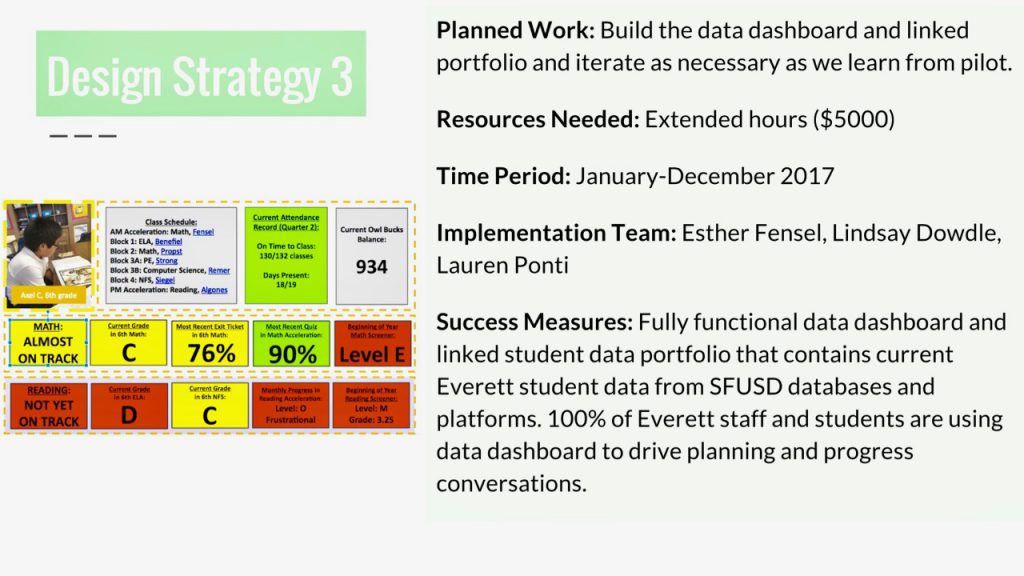Scaling innovation capacity at the organizational level: The iLab at the San Francisco Unified School District
How can we cultivate a culture of academic excellence among African-American female students? How can we engage teachers in data-informed conversations to accelerate student academic growth? How can we transform teacher and family relationships?
The iLab at the San Francisco Unified School District
These are just some of the challenges being addressed in the current school year through the iLab project at the San Francisco Unified School District (SFUSD). On November 10, 2016, 18 teams from 18 schools across all grade levels within the District presented their solutions at the first iLab Pitch Night.
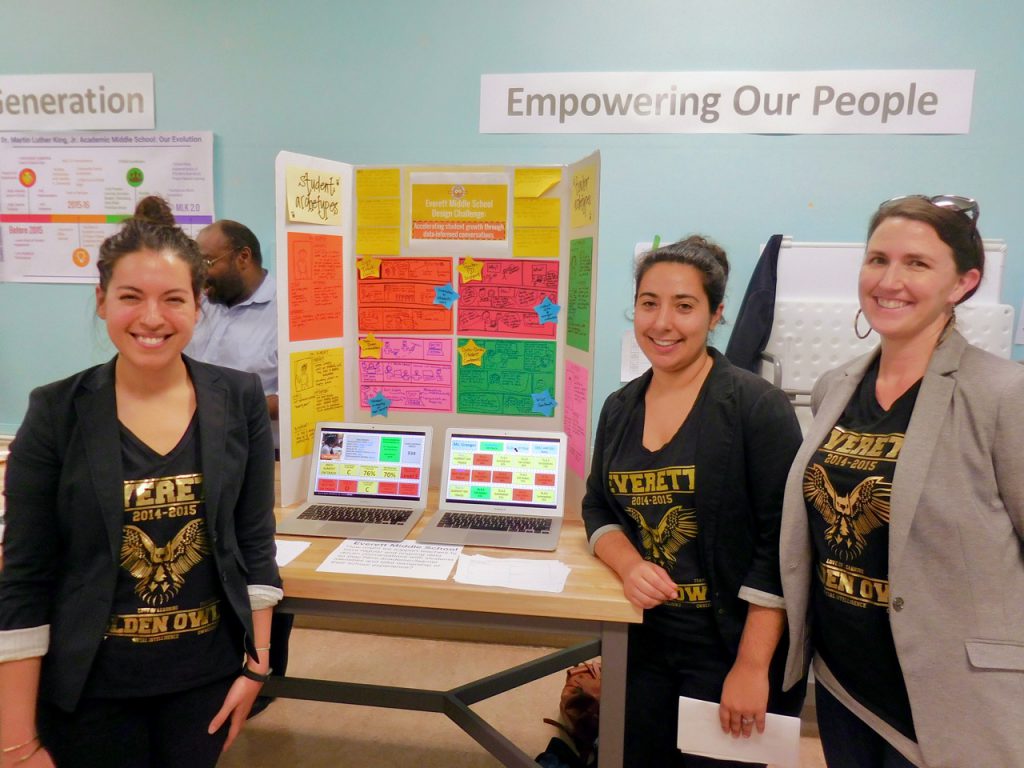
iLab Pitch Night: Engaging teachers in data-informed conversations to accelerate student academic growth – © 2016 IntoActions
For the first two months of the project (September and October), these 18 diverse teams of teachers and administrators (many also including students, family and community) went through an intensive human-centered design process. Using a classic experiential learning approach, they learned about and applied tools and techniques to better understand their challenge and sought to come up with innovative solutions. The teams will now have until the end of the academic year in May 2017 to continue to test, refine and implement their particular solution.
Promoting innovation across an entire organization
At IntoActions, we are passionate about working closely with our partners to help them identify unique insights related to the problems they are trying to solve. We then empower our partners to transform these insights into compelling ideas to address their identified challenges in a unique way.
But we don’t stop there!
As the name IntoActions suggests, we also work with our partners to turn their innovative ideas into actions. We believe that innovation means more than simply coming up with an innovative idea. In our view, innovation also means ‘taking these new ideas home,’ trying them out and implementing them within your team, in your school, in your company. Innovation requires going beyond training just a small team of creative problem-solvers. For innovation to take hold, structures and processes must be established to promote innovation on a systemic level across an entire organization.
So how is the iLab project at the San Francisco Unified School District attempting to build enterprise-wide innovation capacity? Having coached one of the school teams throughout the first phase provided for a unique window into the entire process.
Structures, resources and processes in support of an innovative culture
Top-down support
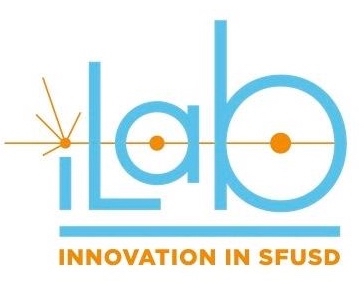 The iLab was established as part of San Francisco Unified School District’s strategic plan Vision 2025, a process that engaged hundreds of stakeholders ranging from teachers, administrators and students to families, community-based organizations and academic experts. It was envisioned as “a space, process and a resource’ with a mandate to assist SFUSD to “promote innovation across [its] organization so that all of [its] students graduate ready to thrive in the 21st century.”
The iLab was established as part of San Francisco Unified School District’s strategic plan Vision 2025, a process that engaged hundreds of stakeholders ranging from teachers, administrators and students to families, community-based organizations and academic experts. It was envisioned as “a space, process and a resource’ with a mandate to assist SFUSD to “promote innovation across [its] organization so that all of [its] students graduate ready to thrive in the 21st century.”
The top-down support of this strategic vision is matched by increasing bottom-up interest from teachers in developing and implementing innovative approaches with strong promise to address day-to-day challenges.
Shared framework and language
SFUSD’s 3D Design Process is based on proven processes and methods developed and used by IDEO.org, the Stanford d.school and the Luma Institute. The tools and techniques are organized by way of three key design skills: Discover, Define, and Do.
The Discover phase invites participants to ‘walk in the shoes’ of the users for whom they are designing a solution. The Define phase translates insights gathered from the field research to (re-)define and make meaning of the problem. The Do phase asks teams to “work in a different way” by brainstorming, body-storming (physically experiencing a situation), prototyping, and testing possible solutions.
Training and coaching
Shortly before the school year began, project teams committed to attending a Bootcamp, a short hands-on introduction to the 3D Design Process. The Bootcamp was followed by four Design Sessions during September and October, culminating in the end of the first phase with a Pitch Night in November where each team presented its solution.
Each team is assigned an iLab Coach, a facilitator trained in the principles and process of human-centered design who supports the teams throughout the entire design process. iLab Coaches might be experienced ‘design thinkers’ from within the District as well as external design experts. iLab Coaches have access to weekly coaching “office hours” with the iLab leadership team. After the Pitch Night, iLab Coaches will now continue to work with their teams during the implementation phase, though on a less regular basis.
Innovation Space
Space matters! Space defines desired behaviors and shapes desired learning. The physical space used for the iLab project is a key instrument in fostering innovation and collaboration. For this initiative, SFUSD converted four classrooms at the Thurgood Marshall Academic High School into a stage for creative team collaboration. Flexible furniture, prototyping tools and materials, visualization aids and other elements encourage teams to take a playful approach to creative problem-solving.
Some teams decided to work at their own school rather than using the iLab space. While there is some advantage of working in their own space, teams might miss out on the unique affordances of the iLab space as well as the energy of being located in the same space alongside other design teams.
Additional resources and requirements
Each team that was invited to participate in the iLab project received prototyping funds of between $2,500 and $5,000. After presenting their solutions during Pitch Night and submitting an implementation plan and budget, teams will also receive implementation funds averaging $10,000. Faculty and staff team members are also granted paid time-off for their work on the innovation project.
The Stanford University Graduate School of Education has also been engaged as a research partner. Stanford graduate students and faculty are conducting research to asses the impact and effectiveness of the 2016-2017 iLab project.
Stay tuned to learn more about the implementation phase at the various schools as well as ongoing efforts aimed at promoting innovation capacity throughout the entire District.
Photo Gallery



